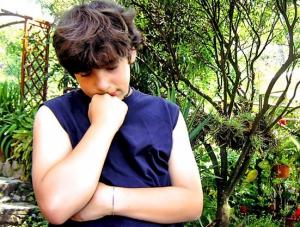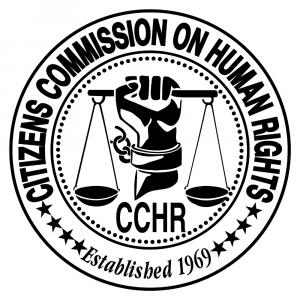
The World Health Organization and the Office of the United Nations High Commissioner for Human Rights call for legislation to prohibit administering electroshock to children.
Researcher says study failed to show the safety or efficacy of electroconvulsive therapy.
— John Read, PhD, School of Psychology, University of East London, U.K.
WASHINGTON, DC, US, December 5, 2023 /EINPresswire.com/ — Despite ongoing claims from psychiatrists that electroconvulsive therapy (ECT, or “electroshock”) is safe and effective, research continues to indicate otherwise.
John Read, Ph.D., at the School of Psychology, University of East London in London, England, points to a new study from China that reported a “high response rate and safety” from ECT administered to 110 adolescents. In fact, the data showed that the majority of the participants experienced memory loss following the procedure, according to Read.
“What is especially concerning about this particular study is that it reports that 76 of the 110 teenagers (69 %) suffered ‘memory impairment’ after the ECT,” he wrote, reporting in the Journal of Affective Disorders.
“When even the psychiatrists themselves acknowledged that 69% have impaired memories as a result, this does not indicate a treatment with a ‘high’ degree of safety,” he advised.
How the loss of memory function was measured was not disclosed in the study, but the assessment was apparently done by the psychiatrists who conducted the study. Read speculates that the rate of memory impairment could have been even higher if the measuring had been done by independent evaluators using validated cognitive tests.
The study lacked a control group receiving placebo (general anesthesia but not the electric shock), which is the same shortcoming found in all ECT studies since 1985, according to Read.
The study also did not include any follow-up beyond the end of treatment, which Read has found is typical of ECT studies.
“So, contrary to the claims of the [study’s] authors, little can be concluded about [ECT] efficacy,” Read wrote.
While the study reported that side effects, including memory loss, were “transient,” without any follow-up “the psychiatrists had no basis for making such a claim,” Read observes.
He cites studies that have found that persistent or permanent memory loss occurs for between 12% and 55% of adults who receive electroshock treatment. He notes that the American Psychiatric Association acknowledged in 2001 that “evidence has shown that ECT can result in persistent or permanent memory loss.”
According to the U.S. Food and Drug Administration (FDA), electroshock can cause brain damage, cognitive impairment, permanent memory loss, prolonged or persistent seizures, worsening psychiatric symptoms, cardiovascular complications (including heart attacks), breathing complications and death.
ECT shoots up to 460 volts of electricity through brain tissue to induce a grand mal seizure, the most serious type of seizure, which can last up to 30 minutes.
Psychiatrists still do not know how ECT is supposed to “work,” how much voltage it will take, or how many sessions of ECT to administer. It is a matter of trial and error with human lives.
Psychiatrists may recommend ECT for deeply depressed patients, but the risk of suicide remains highly elevated after patients receive electroshock treatment. The odds of patients committing suicide in the year after receiving electroshock is not significantly statistically different from the odds of those who did not receive it.
The World Health Organization and the Office of the United Nations High Commissioner for Human Rights recently issued guidance advising that “people being offered ECT should also be made aware of all its risks and potential short- and long-term harmful effects, such as memory loss and brain damage.” The organizations also called for legislation to prohibit the procedure for children. [1]
The Citizens Commission on Human Rights (CCHR) advocates a total ban on ECT and continues to raise public awareness about the brain damage it causes. To date, more than 134,000 people have signed the CCHR online petition to ban ECT. [2]
CCHR recommends a complete physical examination with lab tests, nutritional and allergy screenings, and a review of all current medications to identify any physical causes of depression or other unwanted mental or behavioral symptoms, which might otherwise be misdiagnosed and incorrectly treated as a psychiatric disorder.
The Citizens Commission on Human Rights was co-founded in 1969 by members of the Church of Scientology and the late psychiatrist and humanitarian Thomas Szasz, M.D., recognized by many academics as modern psychiatry’s most authoritative critic, to eradicate abuses and restore human rights and dignity to the field of mental health. CCHR has been instrumental in obtaining hundreds of laws against psychiatric abuse and violations of human rights worldwide.
The CCHR National Affairs Office in Washington, DC, has advocated for mental health rights and protections at the state and federal level. The CCHR traveling exhibit, which has toured major cities worldwide and educated people on the history to the present day of abusive and racist psychiatric practices, has been displayed in Washington, DC, at the Congressional Black Caucus Foundation Annual Legislative Conference and other locations.
[1] https://waps.ohchr.org/sites/default/files/documents/publications/WHO-OHCHR-Mental-health-human-rights-and-legislation_web.pdf
[2] https://www.change.org/p/ban-electroshock-ect-device-being-used-on-children-the-elderly-and-vulnerable-patients
Anne Goedeke
Citizens Commission on Human Rights, National Affairs Office
+1 202-349-9267
email us here
Visit us on social media:
Facebook
Therapy or Torture – The Truth About Electroshock Preview
![]()
Originally published at https://www.einpresswire.com/article/673115866/despite-claims-of-safety-electroshock-caused-memory-loss-in-majority-of-teens-in-new-study-cchr-warns





